MS-PS1-1
Develop models to describe the atomic composition of simple molecules and extended structures.
-
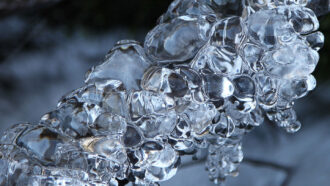 Materials Science
Materials ScienceLet’s learn about the weird science of ice
Better understanding of ice could lead to new deicing materials or even, someday, weather control.
-
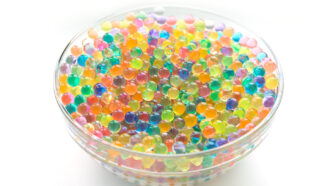 Materials Science
Materials ScienceScientists Say: Hydrogel
Tangled polymer chains help hydrogels hold their shape despite being full of water.
-
 Environment
EnvironmentGas stoves can spew lots of pollution, even when they’re turned off
A new study finds they can leak benzene and other harmful chemicals into homes, sometimes at very high levels.
By Laura Allen -
 Chemistry
ChemistryExplainer: All about carbon dioxide
Animals and other life on Earth exhale carbon dioxide, which plants use for photosynthesis. But too much of this gas can perturb Earth’s climate.
By Trisha Muro -
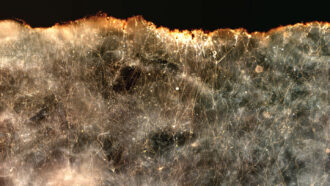 Environment
EnvironmentBacterial ‘living wires’ could help protect the seas and climate
Long, thin bacteria that conduct electricity may be able to help clean up oil spills and reduce emissions of methane, a powerful greenhouse gas.
By Nikk Ogasa -
 Physics
PhysicsProtons may be stretchier than physicists had thought
Physicists looked at how the quarks that make up protons move in response to electric fields. And they found more movement than expected.
-
 Chemistry
ChemistryCould we make vibranium?
The ‘perfect’ metal may belong to the fictitious Marvel world of Wakanda, but scientists hope to one day mimic some of its key traits.
By Anil Oza -
 Physics
PhysicsScientists Say: Neutron
Neutrons are one of the main building blocks of atoms and have no electric charge.
-
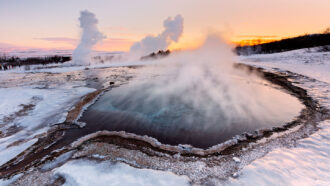 Physics
PhysicsExplainer: What are the different states of matter?
Most people know solids, liquids and gases — but what about the four other states of matter?
-
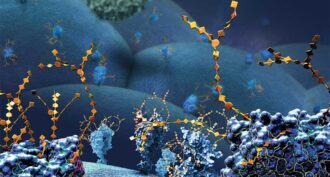 Chemistry
ChemistryLego-like way to snap molecules together wins 2022 chemistry Nobel
This so-called ‘click chemistry’ allows scientists to build complex molecules in the lab and in living cells.
By Meghan Rosen and Nikk Ogasa -
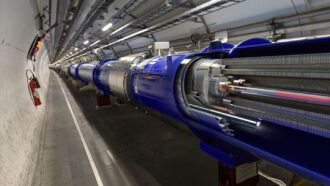 Physics
PhysicsScientists Say: Proton
These positively charged particles are important building blocks in atoms.
-
 Chemistry
ChemistrySimple process destroys toxic and widespread ‘forever’ pollutants
Ultraviolet light, sulfite and iodide break down these PFAS molecules faster and more thoroughly than other methods.
By Nikk Ogasa and Janet Raloff